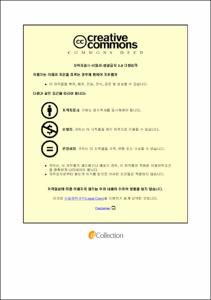케어푸드 HMR 선택속성이 고객만족도 및 재구매의도에 미치는 영향
- Alternative Title
- 다이어트 소비와 건강맞춤 소비의 조절효과
- Abstract
- 본 연구는 케어푸드 HMR(Home Meal Replacement) 제품의 선택속성(품질성, 편의성, 가격성)이 고객만족도와 재구매의도에 미치는 영향을 실증적으로 분석하고, 소비(건강맞춤 소비, 다이어트 소비)의 조절효과를 함께 검토하는 것을 목적으로 하였다. 366명의 유효 표본을 바탕으로 다중회귀분석과 조절효과 검증을 실시하여 연구 가설을 검토하였다.
분석 결과 제품의 선택속성인 편의성과 품질성은 재구매의도와 고객만족도가 모두 긍정적인 영향을 미친 반면에 가격성은 고객만족도에는 유의한 영향을 미쳤지만 재구매의도에는 유의한 영향을 미치지 않았다. 고객만족도는 재구매의도에 가장 큰 영향을 주는 변수로 확인되었으며 고객만족도가 높을수록 재구매 가능성도 높아지는 경향이 나타났다. 조절효과 분석에서는 건강맞춤 소비와 다이어트 소비가 모두 선택속성과 고객만족도 사이의 관계에서 유의한 조절효과를 보이는 것으로 나타났다.
이러한 분석을 통해서 본 연구는 케어푸드 HMR에 대한 이론적 기반을 확장하고 케어푸드 HMR 소비행동 연구에서 단순히 선택속성의 영향력을 분석하는 것이 아니라 소비자의 소비성향의 조절효과를 구체적으로 다룸으로써 의미 있는 학문적 시사점을 제공했다.
이를 바탕으로 케어푸드 HMR 시장에서 다음과 같은 실무적 시사점을 도출할 수 있었다. 소비자가 제품을 처음 구매할때는 저렴한 가격을 통해서 소비자의 구매를 유도할 수 있지만 장기적으로는 한계가 존재하기 때문에 고객만족도를 높이기 위해서는 단순한 가격 경쟁보다는 제품의 품질성과 편의성을 높여야 한다. 이는 케어푸드 HMR 시장에서 소비자의 가치지향적 소비성향이 구매 행동에 실질적인 변화를 유도함을 알 수 있으며 가격 경쟁보다는 편의성 강화, 품질 개선, 건강성 중심의 차별화 전략이 필요함을 시사했다. 또한 고객만족도가 재구매의도에 직접적인 영향을 준다는 분석 결과를 통해서 고객 사후 관리 같은 지속적인 전략이 중요하다는 것을 알 수 있다. 이런 실무적 시사점에 따라서 기업은 다양한 소비자의 소비성향에 맞는 가치 전달 전략과 통합적 마케팅 커뮤니케이션(IMC) 구성에 집중해야 하며 건강에 관심이 많은 젊은 소비자층을 타게팅한 제품 개발과 맞춤형 마케팅 전략을 수립하고 실행해야 한다.
본 연구는 표본이 수도권 지역에 국한되어 있으며 단일 시점 데이터를 기반으로 수행되었다는 점에서 일반화에는 한계가 있다. 후속 연구에서는 지역과 시간적 범위를 확장하고 전국 단위의 표본 수집과 종단적 분석을 통해서 보다 정교한 해석이 필요할 것으로 판단된다.|The purpose of this study was to empirically analyze the effect of the selection attribute (quality, convenience, and price) of care food HMR (Home Meal Replacement) products on customer satisfaction and repurchase intention, and to examine the moderating effect of consumption (health-tailored consumption, diet consumption). Based on a valid sample of 366 people, multiple regression analysis and moderating effect verification were conducted to review the research hypothesis.
As a result of the analysis, convenience and quality, which are the selection attributes of the product, had a positive effect on both repurchase intention and customer satisfaction, while price had a significant effect on customer satisfaction but not on repurchase intention. Customer satisfaction was identified as a variable that has the greatest influence on repurchase intention, and the higher the customer satisfaction, the higher the repurchase possibility. In the moderating effect analysis, it was found that both health-specific consumption and diet consumption showed a significant moderating effect in the relationship between selection attributes and customer satisfaction.
Through this analysis, this study expanded the theoretical foundation for care food HMR and provided meaningful academic implications by specifically addressing the moderating effect of consumers' consumption propensity rather than simply analyzing the influence of selection attributes in the study of care food HMR consumption behavior.
Based on this, the following practical implications could be drawn from the care food HMR market. When consumers first purchase a product, they can induce consumers to purchase it through a low price, but since there are limitations in the long run, the quality and convenience of the product must be increased rather than simple price competition to increase customer satisfaction. This shows that in the care food HMR market, consumers' value-oriented consumption propensity induces practical changes in purchasing behavior, and suggests that differentiation strategies centered on convenience, quality improvement, and health are needed rather than price competition. In addition, the analysis results that customer satisfaction directly affects repurchase intention show that continuous strategies such as customer follow-up management are important. According to these practical implications, companies should focus on value delivery strategies and integrated marketing communications (IMC) composition to suit the consumption propensity of various consumers, and develop and implement product development and customized marketing strategies targeting young health-conscious consumers.
In this study, there is a limit to generalization in that the sample is limited to the metropolitan area and was conducted based on single viewpoint data. In the follow-up study, it is judged that more sophisticated interpretation is needed through expanding the regional and temporal range and through sample collection and longitudinal analysis at the national level.
- Issued Date
- 2025
- Awarded Date
- 2025-08
- Type
- Thesis
- Affiliation
- 한성대학교 경영대학원
- Department
- 경영대학원 호텔관광외식경영학과
- Advisor
- 김경자
- Degree
- Master
- Publisher
- 한성대학교 경영대학원
- Appears in Collections:
- 호텔관광외식경영학과 > 1. Thesis
- Files in This Item:
-
-
Download
 200000901008.pdf
기타 데이터 / 1.12 MB / Adobe PDF
200000901008.pdf
기타 데이터 / 1.12 MB / Adobe PDF
-
Items in Repository are protected by copyright, with all rights reserved, unless otherwise indicated.